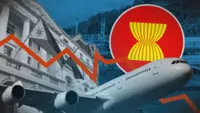KUALA LUMPUR: Malaysia and Asean’s relationship with China should continue to be built on mutual respect and trust, particularly when it comes to driving high-value industries, fostering innovation and promoting sustainable development, says Tengku Datuk Seri Zafrul Tengku Abdul Aziz.
The Investment, Trade and Industry Minister said Asean must step up and embrace great power rivalries, economic shifts and opportunities in technological advancement, including through its relationship with China.





